While many rural landowners believe they have the right to build a home on their own holdings, the tightening of planning restrictions in recent years has made the process a lot more difficult. And in some cases, impossible.
A raft of considerations must be taken into account when planning a one-off house, with environmental factors one of the key issues for those looking to build in rural Ireland. Large swathes of the countryside are designated Special Areas of Conservation (SACs), with up to 13,500 sq metres of rural Ireland affected. These areas of prime conservation habitats are considered significant, not only by the Irish Government, but also at EU level.
Under European legislation regarding SACs, states are obliged to take necessary conservation measures. These include, if needed, appropriate management plans designated for the sites or integrated into development plans and measures which correspond to the ecological requirement of the natural habitat concerned.
States are required to take steps to conserve the site. They have control over development and planning permissions, including modification of existing planning permission authorisations that are inconsistent with it.
When a person submits an application for planning in a SAC, they must include an Environmental Impact Assessment (EIA) on how the proposed house may impact its surroundings.
The purpose of an EIA is to protect the environment. It does this by ensuring that, before deciding whether to grant planning permission for a development proposal, the planning authority fully understands the effects it is likely to have on the environment and has factored that into the decision.
However, this layer of regulation has long been a thorn in the side of farming families who want their children to be able to build homes on their land.
Connemara is home to a considerable number of SACs, with bogland rich in heath vegetation which supports a wide variety of habitats across the western region of Co Galway.
Not fit for purpose
While protective of their natural environment, people living in the area say the restrictions imposed on families trying to build a home in their own communities is preventing the region from thriving, socially and economically. It is also worsening a declining population level, which is a long-standing source of concern.
A survey commissioned by Connemara Chamber in 2024 showed the extent of this frustration, with 80% of respondents saying the existing planning system was ‘unfair’ and ‘not fit for purpose’.
The online open survey received 859 responses, 72% of which stated that the planning system ‘negatively affected them or their family members in their ability to build a house in Connemara’.
Over 90% believed that those from or living in an area for more than 10 years should have the right to build a home in the area.
The survey also conveyed a growing anger in the ability of people who are not from Connemara to object to planning applications made by those from the area.
Martha* is a native of Roundstone and despite being originally granted planning permission in 2006, she was then refused for a second application submitted to Galway County Council in 2022.
“I applied for planning permission in 2006 which was granted for the site I’m trying to build a two-bed bungalow on. However, my circumstances changed so I decided not to proceed at that time,” she explains.
“Then in 2022, I reapplied for planning permission and was refused on the basis that I wasn’t intrinsic to the local community, despite living here most of my life.
“As part of that application, three objections were submitted from the owners of a holiday home near the site. Even though the people involved have never lived in this house, which has fallen into dereliction, they sent letters from Dublin, New York and London to Galway County Council objecting to my application.
“That property has since been sold and while I was told their objections would not sway the decision, it is still galling that people who don’t live in the area can have a say when it comes to planning.”
Martha says her experience is very common throughout Connemara, with a growing concern that communities will be lost if something isn’t done to reverse the trend.
Planning restrictions are having a huge impact on local people who want to remain in the village but can’t afford the ridiculous property prices in the area
“I’m not alone in my struggles to get planning. Two of my friends have been refused in recent months, and they’re both married with young children,” she says.
“One has since decided to buy a house in Clifden whereas the other is going to apply one more time and if she fails, she will have to leave the area. This is so bad for Roundstone as a whole, the local national school has less than 20 pupils and there is a very real fear that it will close.
“The entire Connemara region is suffering on the back of planning restrictions. There’s no industry anymore in this region, and the hospitality industry, which is seasonal, can’t get the staff in high season because there is no younger generation.
“Planning restrictions are having a huge impact on local people who want to remain in the village but can’t afford the ridiculous property prices in the area where you’re paying up to half a million euro for something akin to a shed.”
Strike a balance
Several of those who responded to the Connemara Chamber survey agreed with Martha, with a huge consensus on the inequity in planning decisions.
“I understand the importance of careful planning in Connemara in order for it to remain unspoilt but Galway County Council planners are decades behind other local authorities such as Mayo and Clare in terms of developing sustainable tourism, building and development,” said one respondent.
More than one comment referred to the planning process as ‘a joke’ and said every obstacle was put in a person’s way when trying to build on family land, in terms of the cost of making an application and the associated paperwork and tests required.
“The powers that be don’t want people living in Connemara, they want the whole area as a national park for the great and the good,” remarked one contributor.
“The planning process is a complete joke. No local has a chance to build or buy unless they inherit a house from their parents. Numerous locals have been rejected planning for ridiculous reasons and the whole thing is a money spinner. Councillors seem to have absolutely no say or influence, rendering their jobs pointless. It’s an awful pity that one can’t see a future living in the place that they were born but that is the stark reality facing the vast majority of us now.”
While locals appreciate the need for conservation, they refuse to accept it should be at the cost of denying local people a home in their own community.
“I understand that environmental factors have to be considered but An Taisce has a lot of power in these matters and often they don’t strike a balance between looking after the ecosystem and providing a basic housing need,” another respondent said.
Others accused planners of ‘hiding behind’ environmental laws in a bid to stifle development in the Connemara region.
“The planning authority’s approach to local housing is a major roadblock for young locals [who want] to live in Connemara,” the respondent said.
“They have a very vague guide in the form of the county development plan which is open to the interpretation of the individual planner. The planners also rotate so often it is incredibly difficult to gain any kind of consistency in the area. From my own drawn-out planning process, I would be of the opinion that planners are extremely negative towards rural living and communities, and hide behind SACs and vague development plans to justify their decisions.”
*Martha’s name has been changed to protect her identity as she did not wish to be named.
Next week: We examine the need for pre- planning meetings with local authorities when applying for permission to build a home in rural Ireland.
The recently published Programme for Government includes a commitment to support one-off rural housing.Newly appointed Housing Minister James Browne has, however, yet to determine when updated Rural Housing Guidelines will be published. A 2024 survey carried out by Connemara Chamber in Co Galway found 80% of people believed that the planning system was ‘not fit for purpose/not fair’.72% believed the planning system negatively affected them or their family members in the ability to build a home in Connemara.88% said people outside Connemara should not have the right to object to rural planning applications.

2024 survey commissioned by Connemara Chamber of Commerce.
While many rural landowners believe they have the right to build a home on their own holdings, the tightening of planning restrictions in recent years has made the process a lot more difficult. And in some cases, impossible.
A raft of considerations must be taken into account when planning a one-off house, with environmental factors one of the key issues for those looking to build in rural Ireland. Large swathes of the countryside are designated Special Areas of Conservation (SACs), with up to 13,500 sq metres of rural Ireland affected. These areas of prime conservation habitats are considered significant, not only by the Irish Government, but also at EU level.
Under European legislation regarding SACs, states are obliged to take necessary conservation measures. These include, if needed, appropriate management plans designated for the sites or integrated into development plans and measures which correspond to the ecological requirement of the natural habitat concerned.
States are required to take steps to conserve the site. They have control over development and planning permissions, including modification of existing planning permission authorisations that are inconsistent with it.
When a person submits an application for planning in a SAC, they must include an Environmental Impact Assessment (EIA) on how the proposed house may impact its surroundings.
The purpose of an EIA is to protect the environment. It does this by ensuring that, before deciding whether to grant planning permission for a development proposal, the planning authority fully understands the effects it is likely to have on the environment and has factored that into the decision.
However, this layer of regulation has long been a thorn in the side of farming families who want their children to be able to build homes on their land.
Connemara is home to a considerable number of SACs, with bogland rich in heath vegetation which supports a wide variety of habitats across the western region of Co Galway.
Not fit for purpose
While protective of their natural environment, people living in the area say the restrictions imposed on families trying to build a home in their own communities is preventing the region from thriving, socially and economically. It is also worsening a declining population level, which is a long-standing source of concern.
A survey commissioned by Connemara Chamber in 2024 showed the extent of this frustration, with 80% of respondents saying the existing planning system was ‘unfair’ and ‘not fit for purpose’.
The online open survey received 859 responses, 72% of which stated that the planning system ‘negatively affected them or their family members in their ability to build a house in Connemara’.
Over 90% believed that those from or living in an area for more than 10 years should have the right to build a home in the area.
The survey also conveyed a growing anger in the ability of people who are not from Connemara to object to planning applications made by those from the area.
Martha* is a native of Roundstone and despite being originally granted planning permission in 2006, she was then refused for a second application submitted to Galway County Council in 2022.
“I applied for planning permission in 2006 which was granted for the site I’m trying to build a two-bed bungalow on. However, my circumstances changed so I decided not to proceed at that time,” she explains.
“Then in 2022, I reapplied for planning permission and was refused on the basis that I wasn’t intrinsic to the local community, despite living here most of my life.
“As part of that application, three objections were submitted from the owners of a holiday home near the site. Even though the people involved have never lived in this house, which has fallen into dereliction, they sent letters from Dublin, New York and London to Galway County Council objecting to my application.
“That property has since been sold and while I was told their objections would not sway the decision, it is still galling that people who don’t live in the area can have a say when it comes to planning.”
Martha says her experience is very common throughout Connemara, with a growing concern that communities will be lost if something isn’t done to reverse the trend.
Planning restrictions are having a huge impact on local people who want to remain in the village but can’t afford the ridiculous property prices in the area
“I’m not alone in my struggles to get planning. Two of my friends have been refused in recent months, and they’re both married with young children,” she says.
“One has since decided to buy a house in Clifden whereas the other is going to apply one more time and if she fails, she will have to leave the area. This is so bad for Roundstone as a whole, the local national school has less than 20 pupils and there is a very real fear that it will close.
“The entire Connemara region is suffering on the back of planning restrictions. There’s no industry anymore in this region, and the hospitality industry, which is seasonal, can’t get the staff in high season because there is no younger generation.
“Planning restrictions are having a huge impact on local people who want to remain in the village but can’t afford the ridiculous property prices in the area where you’re paying up to half a million euro for something akin to a shed.”
Strike a balance
Several of those who responded to the Connemara Chamber survey agreed with Martha, with a huge consensus on the inequity in planning decisions.
“I understand the importance of careful planning in Connemara in order for it to remain unspoilt but Galway County Council planners are decades behind other local authorities such as Mayo and Clare in terms of developing sustainable tourism, building and development,” said one respondent.
More than one comment referred to the planning process as ‘a joke’ and said every obstacle was put in a person’s way when trying to build on family land, in terms of the cost of making an application and the associated paperwork and tests required.
“The powers that be don’t want people living in Connemara, they want the whole area as a national park for the great and the good,” remarked one contributor.
“The planning process is a complete joke. No local has a chance to build or buy unless they inherit a house from their parents. Numerous locals have been rejected planning for ridiculous reasons and the whole thing is a money spinner. Councillors seem to have absolutely no say or influence, rendering their jobs pointless. It’s an awful pity that one can’t see a future living in the place that they were born but that is the stark reality facing the vast majority of us now.”
While locals appreciate the need for conservation, they refuse to accept it should be at the cost of denying local people a home in their own community.
“I understand that environmental factors have to be considered but An Taisce has a lot of power in these matters and often they don’t strike a balance between looking after the ecosystem and providing a basic housing need,” another respondent said.
Others accused planners of ‘hiding behind’ environmental laws in a bid to stifle development in the Connemara region.
“The planning authority’s approach to local housing is a major roadblock for young locals [who want] to live in Connemara,” the respondent said.
“They have a very vague guide in the form of the county development plan which is open to the interpretation of the individual planner. The planners also rotate so often it is incredibly difficult to gain any kind of consistency in the area. From my own drawn-out planning process, I would be of the opinion that planners are extremely negative towards rural living and communities, and hide behind SACs and vague development plans to justify their decisions.”
*Martha’s name has been changed to protect her identity as she did not wish to be named.
Next week: We examine the need for pre- planning meetings with local authorities when applying for permission to build a home in rural Ireland.
The recently published Programme for Government includes a commitment to support one-off rural housing.Newly appointed Housing Minister James Browne has, however, yet to determine when updated Rural Housing Guidelines will be published. A 2024 survey carried out by Connemara Chamber in Co Galway found 80% of people believed that the planning system was ‘not fit for purpose/not fair’.72% believed the planning system negatively affected them or their family members in the ability to build a home in Connemara.88% said people outside Connemara should not have the right to object to rural planning applications.

2024 survey commissioned by Connemara Chamber of Commerce.





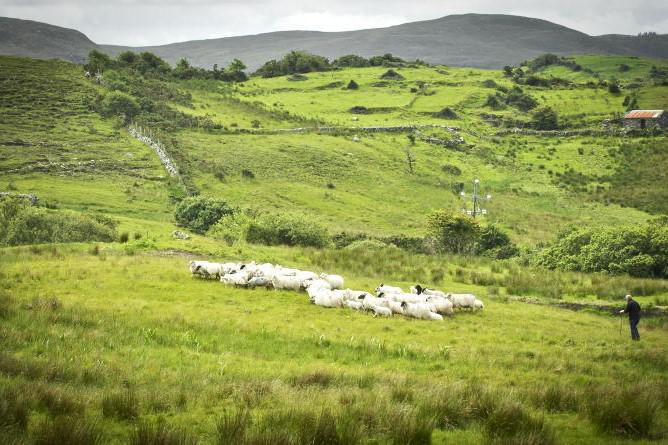
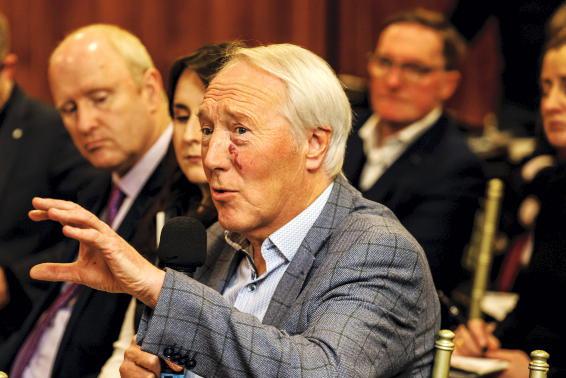

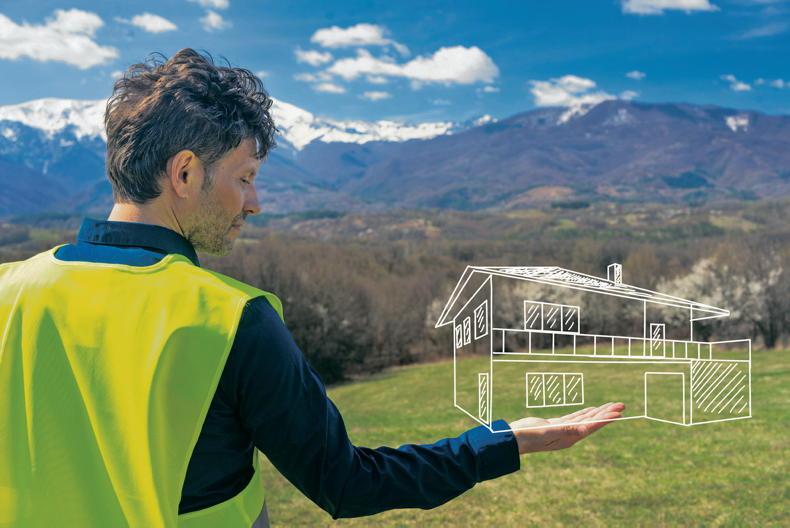
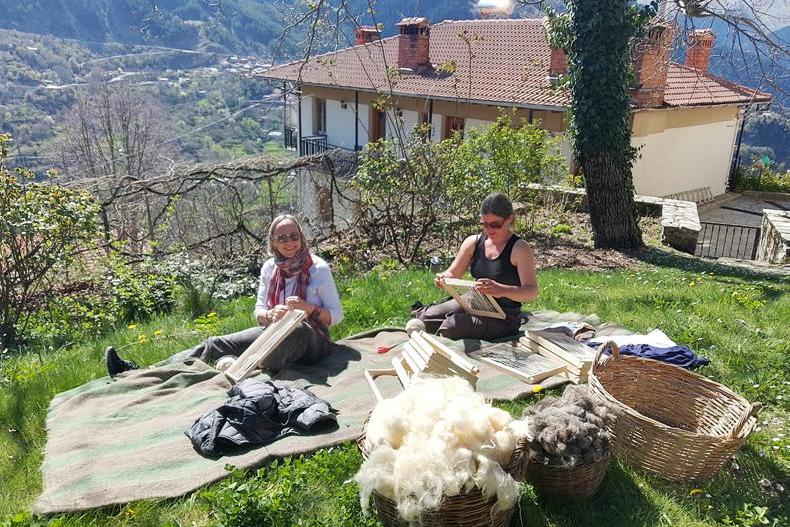
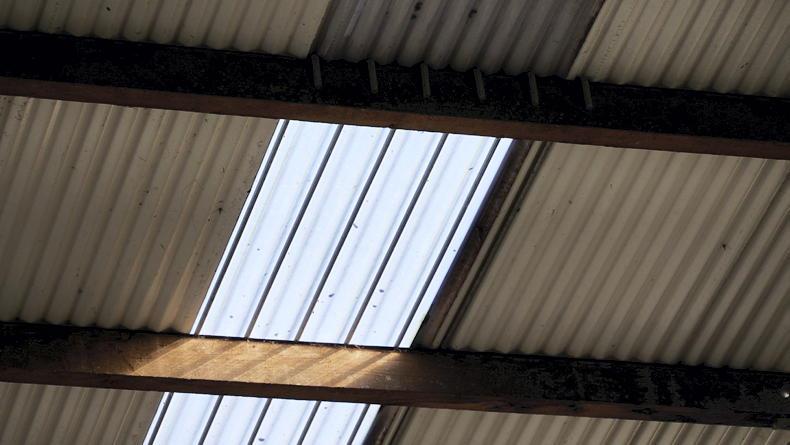
SHARING OPTIONS